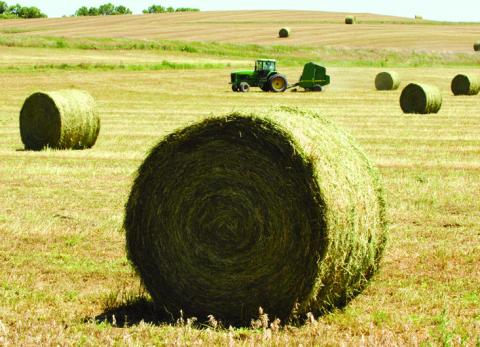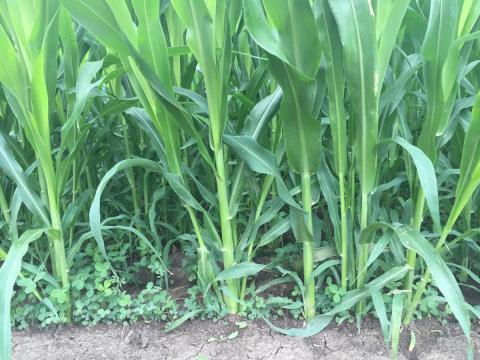Remove Bales Soon After Harvest to Avoid Future Yield Loss
June 30, 2017
Many hay fields have recently been cut and baled for hay. After the final cutting for the year, it may not matter too much if bales are left in the field, but when more harvests are expected from that field, delaying removal may cut future yield.
Insects Causing Problems for Alfalfa
June 22, 2017
If you’re seeing slow regrowth or weak alfalfa seedlings, it's time to get in the field and scout for the cause, most likely insects at this time of year. Nebraska growers have been reporting all kinds of insects causing problems.
Successfully Seeding Forages into Wheat Stubble
June 22, 2017
Wheat stubble can be an excellent seedbed in which to no-till plant forages, particularly if you're preparing to start planting immediately after wheat harvest, while soil water is available and before weeds get a foothold.
Options for Forage Following Wheat
June 16, 2017
If you still have good moisture after wheat harvest, planting a forage crop may be a good option.
Forages May be the Answer if Replant Options are Limited
June 16, 2017
If your post-storm replant options are limited, check previously applied herbicide labels & consider planting forages.
Hastening Hay Dry-Down
May 25, 2017
Nebraska has faced less than optiumum weather for making hay the last couple of weeks. While the continued rains are obviously a problem, cool, cloudy days are also an issue.
Time To Fertilize Warm-Season Grasses
May 24, 2017
Warm-season grasses provide good pasture and hay and use soil nutrients efficiently. If you can benefit from extra growth, fertilize now, in late May, for higher yields.
Where you have moisture, these grasses will begin growing rapidly as soil and air temperature increase. Adding nitrogen now will help these grasses produce extra hay or grazing.
Plan the Timing of Grass Hay Harvest
May 24, 2017
Native meadows will soon start growing rapidly and bromegrass is about to head out. Here are some tips to make your grass hay suitable for your animals.


